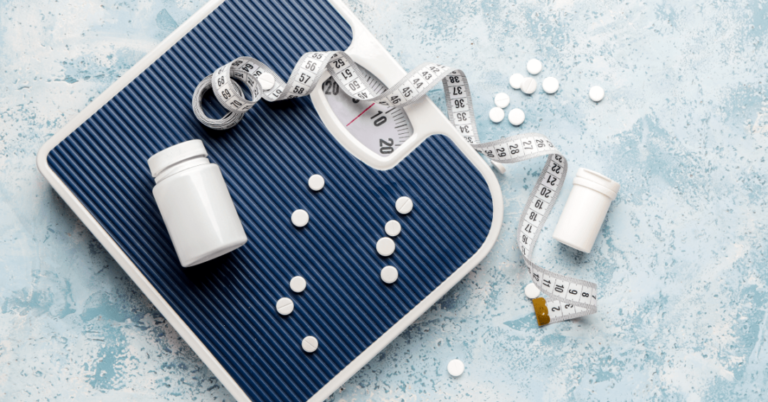Benefits Of Collagen Peptides Protein: The Link Between Collagen and Muscle Mass
Some links on this page are affiliate links (including Amazon Associate links) which means that, if you choose to make a purchase, we may earn a small commission at no extra cost to you. We greatly appreciate your support!
Imagine sipping on a protein shake that not only tastes great but also holds the secret to unlocking your full muscle-building potential. Sounds too good to be true, right? Well, buckle up, fitness enthusiasts, because we’re about to explore` the fascinating world of collagen and its unexpected impact on muscle mass. Did you know that collagen makes up about 30% of the total protein in your body? That’s right – it’s not just for glowing skin and healthy joints! In this article, we’ll explore the surprising connection between collagen and muscle growth, and why it might just be the game-changer you’ve been looking for in your fitness journey. Get ready to pump up your knowledge and potentially your muscles!
What is Collagen and Why Does it Matter for Muscle Growth?
Collagen is a protein that acts like a glue in our bodies. It helps hold things together, including our skin, bones, tendons, and muscles. Think of it as a strong, flexible framework that gives your body structure and support. Without collagen, our bodies wouldn’t be able to function properly because it’s found almost everywhere.
Definition of Collagen and Its Role in the Body
Collagen is the most abundant protein in your body, making up about 30% of all proteins. It has an important role to provide strength and elasticity to tissues like your skin, bones, and muscles. It helps keep our joints flexible, our skin firm, and our muscles strong by supporting their structure.
Types of Collagen and Their Specific Functions
There are different types of collagen, but the three most important are Types I, II, and III:
- Type I collagen is found in your skin, tendons, and bones. It helps keep these areas strong and durable.
- Type II collagen is mostly in your cartilage, which cushions your joints and allows smooth movement.
- Type III collagen is found alongside Type I and supports the muscles, organs, and arteries.
Each type plays a different role, but together, they help your body function smoothly.
The Relationship Between Collagen and Muscle Tissue
Collagen is especially important for muscles because it helps them stay strong and recover from damage. Your muscles are surrounded by connective tissue made of collagen, and this tissue helps your muscles stay together and perform better. Collagen also supports post-exercise muscle repair, which is key for building muscle mass over time.
How Collagen Production Changes with Age and Its Impact on Muscle Mass
As we age, our bodies naturally produce less collagen. This means our muscles don’t have the same support they once did, and they can become weaker over time. The decline in collagen can also lead to slower muscle recovery after workouts, making it harder to build and maintain muscle mass. For people looking to boost muscle growth, especially as they age, collagen is a critical piece of the puzzle.
Summary
Collagen is a key protein that supports your body in many ways, especially when it comes to muscle growth. Collagen provides structure to muscle tissue and helps with repair, making it essential for maintaining and building muscle mass. However, as we age, collagen production slows down, which can impact muscle strength and recovery. Understanding the link between collagen and muscle mass can help you make informed choices to stay strong and healthy.
The Science Behind Collagen and Muscle Mass
Collagen does more than just keep your skin smooth—it plays a big role in building and maintaining muscle mass. Recently, scientists have discovered some exciting connections between collagen and muscle growth that can help you understand how this powerful protein works for your body.
Recent Studies Linking Collagen Supplementation to Increased Muscle Mass
In recent years, several studies have shown that taking collagen supplements can actually help increase muscle mass, especially in older adults. One study found that people who combined collagen supplements with exercise saw a bigger improvement in muscle strength and size compared to those who just exercised without collagen. This research suggests that collagen might be a helpful addition to your muscle-building routine.
Mechanisms by Which Collagen Supports Muscle Growth and Repair
So, how does collagen actually work to help muscles grow? Collagen is a key part of the connective tissue that surrounds and supports your muscles. When you work out, your muscles experience tiny tears, and collagen helps repair those tears. It also promotes the production of other proteins, like creatine, that are essential for muscle growth. By strengthening the connective tissue, collagen allows your muscles to work harder and recover faster after exercise.
Comparison of Collagen to Whey Protein Sources for Muscle Building
You may be familiar with proteins like whey or casein, which are often used for muscle building. While these proteins are great for quick muscle recovery because they’re packed with essential amino acids, collagen offers a different benefit. Unlike other proteins, collagen focuses on strengthening the connective tissue and joints, which supports long-term muscle growth and stability. So, while whey protein helps you recover quickly after a workout, collagen provides the structural support needed to maintain that growth over time.
Potential Synergistic Effects of Collagen with Resistance Training
Collagen becomes even more powerful when combined with resistance training, like lifting weights. When you do strength exercises, you create small tears in your muscle fibers. Collagen helps repair these tears, allowing your muscles to grow back stronger. Some studies suggest that using collagen supplements along with resistance training can create a “synergistic” effect, meaning the two work better together than they would alone. This combination can lead to faster muscle recovery and more significant gains in muscle mass.
Summary
Collagen is not just a beauty protein—it has real benefits for muscle growth and recovery. Recent studies show that taking collagen supplements, especially when paired with resistance training, can help increase muscle mass and strength. While collagen works differently from other protein sources like whey, it provides essential support for the connective tissue that keeps your muscles strong and healthy.
Benefits of Collagen for Muscle Mass and Performance
Collagen isn’t just helpful for building muscle—it also plays a big role in boosting overall performance. From increasing your strength to helping you recover faster, collagen can make a noticeable difference in how your body performs during exercise and beyond.
Improved Muscle Strength and Power Output
One of the biggest benefits of collagen is that it can help improve your muscle strength and power output. By strengthening the connective tissue around your muscles, collagen allows you to generate more force during your workouts. This means you can lift heavier weights, push harder, and perform better in physical activities. Studies have shown that people who take collagen supplements experience increases in muscle strength, which can lead to better performance over time.
Enhanced Recovery and Reduced Muscle Soreness
We’ve all experienced the soreness that comes after a tough workout. Collagen can help with that too. Since collagen plays a role in repairing and rebuilding muscle tissue, it can speed up recovery and reduce the muscle soreness you feel after exercising. This means you can get back to your workouts faster, without feeling as much discomfort, making it easier to stay consistent with your fitness routine.
Increased Lean Body Mass and Muscle Definition
If you’re looking to increase lean muscle mass and enhance muscle definition, collagen can be a valuable tool. Collagen helps your muscles stay strong and lean by supporting muscle growth while also reducing fat mass. This combination leads to more defined muscles, giving you that toned, athletic look. Since collagen promotes lean body mass, it’s especially useful for those wanting to improve body composition without bulking up too much.
Support for Connective Tissues and Joint Health During Intense Workouts
Collagen plays an important role in keeping your connective tissues and joints healthy, especially when you’re pushing your body during intense workouts. Since it strengthens tendons and ligaments, collagen helps prevent injuries and supports joint health, allowing you to train harder and longer. Whether you’re lifting weights or doing high-impact activities, collagen ensures that your joints stay flexible and resilient.
Summary
Collagen offers a range of benefits for both muscle mass and performance. It boosts muscle strength, enhances recovery, and helps define lean muscles, all while supporting your joints and connective tissues. If you’re serious about improving your performance, collagen could be the missing piece to take your workouts to the next level.
How to Incorporate Collagen into Your Muscle-Building Regimen
Adding collagen to your routine is easy, and it can give you that extra boost you need to support muscle growth and performance. Whether you prefer supplements or natural food sources, there are plenty of ways to consume collagen in your diet to help you reach your fitness goals.
Different Forms of Collagen Supplements (Powders, Pills, Liquids)
Collagen supplements come in several forms, so you can choose the one that fits best with your lifestyle.
- Collagen powders are the most popular and versatile. You can mix them into smoothies, shakes, coffee, or even water. They’re easy to digest and blend into almost anything without affecting the taste.
- Pills are great for convenience. If you don’t want to mix powders, just take a couple of pills and you’re good to go.
- Liquid collagen is another option, often ready to drink and available in small bottles. It’s a quick and easy way to get your collagen on the go.
Each form works well, so it’s just a matter of finding what’s easiest and most convenient for you.
Optimal Dosage and Timing for Muscle Growth
The right amount of collagen can help maximize muscle growth. Most studies suggest that taking about 10-15 grams of collagen per day is effective for muscle building. It’s best to take your collagen about 30-60 minutes before or after your workout, as this is when your body needs it most for recovery and repair. Pairing collagen with exercise enhances its muscle-building benefits.
Combining Collagen with Other Protein Sources for Maximum Effect
While collagen is great for supporting muscle tissue, it doesn’t have all the essential amino acids you need for overall muscle growth. That’s why combining collagen with other protein sources, like whey or plant-based proteins, can give you the best results. Whey protein helps with quick recovery by supplying your muscles with fast-digesting amino acids, while collagen strengthens your connective tissues and supports long-term muscle health. Together, they provide a powerful one-two punch for muscle building.
Foods Rich in Collagen and Collagen-Boosting Nutrients
If you prefer getting collagen through food, there are plenty of options that naturally contain collagen or help boost collagen production:
- Bone broth is one of the best sources of natural collagen.
- Chicken, fish, and egg whites also contain high levels of collagen.
- To boost collagen production, you can eat foods rich in vitamin C (like oranges, strawberries, and bell peppers), zinc (like pumpkin seeds and nuts), and copper (found in shellfish and leafy greens). These nutrients help your body produce more collagen naturally.
Summary
Incorporating collagen into your muscle-building regimen is simple and effective. Whether you choose powders, pills, or liquids, aim for 10-15 grams daily around your workouts. Combining collagen with other proteins and eating collagen-rich foods can further enhance your results, giving your muscles and joints the support they need for optimal growth and performance.
Taking Collagen: Potential Side Effects and Considerations
There are many benefits of collagen supplementation and they are generally safe for most people, but like with any supplement, there are a few things to consider before adding it to your routine. Let’s explore the safety of collagen, potential interactions, and what to look out for when choosing a product.
Safety Profile of Collagen Supplements
For most people, collagen supplements are very safe to use. Since collagen is a natural protein already found in your body, it’s usually well-tolerated, even in higher doses. Most people can take collagen without any issues, but in rare cases, some might experience mild side effects like an upset stomach or feeling full. If you have any concerns, it’s always a good idea to talk to your doctor before starting any new supplement.
Possible Interactions with Other Supplements or Medications
While collagen is safe for most, it’s important to consider how it might interact with other supplements or medications you’re taking. Collagen doesn’t typically interfere with many substances, but if you’re on blood thinners or have certain health conditions, it’s best to check with your healthcare provider. They can help you avoid any potential interactions or unwanted effects.
Quality Considerations When Choosing Collagen Products
Not all collagen products are created equal, so it’s important to choose a high-quality supplement. Look for collagen that’s grass-fed, pasture-raised, or wild-caught if you want the cleanest option. Also, check the label for any unnecessary additives or fillers. A collagen supplement that is hydrolyzed (broken down into smaller pieces) is easier for your body to absorb. Always go for trusted brands that are transparent about their sourcing and ingredients.
Who Should Be Cautious About Using Collagen Supplements
While most people can take collagen without any problems, there are a few groups who should be cautious. If you have food allergies (especially to beef, chicken, or fish), you’ll want to make sure your collagen is sourced from a protein you can safely consume. Pregnant or breastfeeding women should also talk to their doctors before taking collagen, just to be safe. Additionally, if you have a chronic health condition or are on medications, it’s wise to check with a healthcare professional before adding collagen to your routine.
Summary
Collagen supplements are generally safe and well-tolerated, but it’s important to choose high-quality products and consider potential interactions with medications or other supplements. While most people can benefit from collagen, those with allergies or health conditions should be cautious and seek advice from a healthcare provider to ensure it’s a good fit for their needs.
Conclusion
Well, folks, we’ve flexed our mental muscles and dived deep into the world of collagen and muscle mass. Who knew that this unassuming protein could be such a powerhouse for our gains? From supporting muscle growth to enhancing recovery, collagen is proving to be more than just a pretty face in the supplement world. As we’ve seen, integrating collagen into your fitness routine could be the missing link in achieving your muscle-building goals. So, why not give it a shot? Your future self – with those sculpted muscles and speedy recovery times – might just thank you. Remember, though, that supplements are just one piece of the puzzle. Combine collagen with a solid workout plan, balanced nutrition, and consistency, and you’ll be well on your way to becoming the best version of yourself. Now, go out there and show those weights who’s boss!





